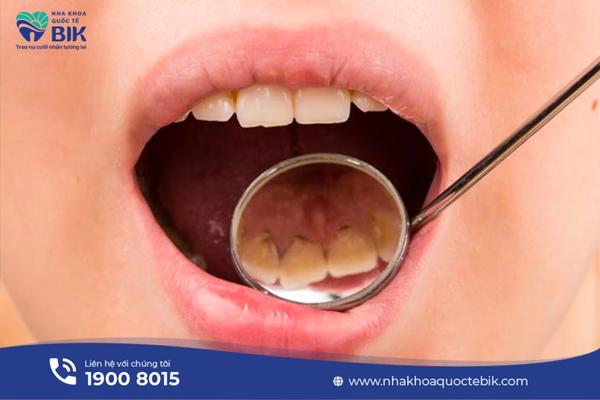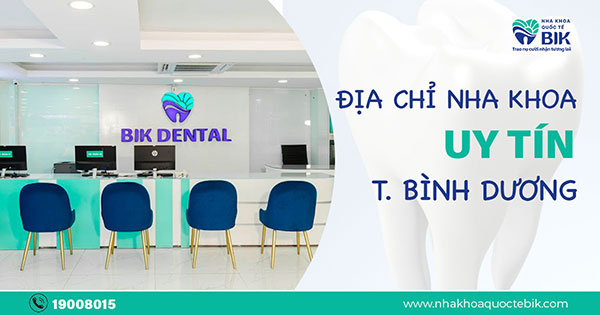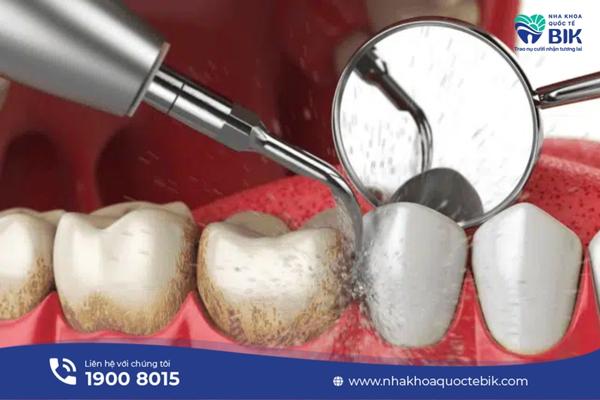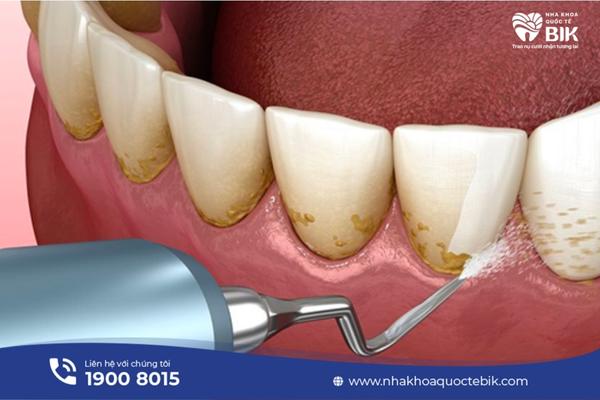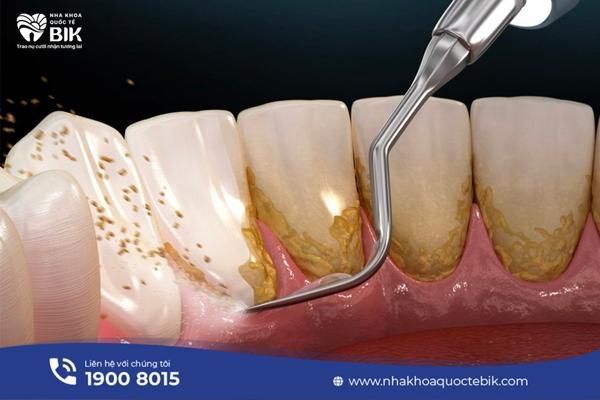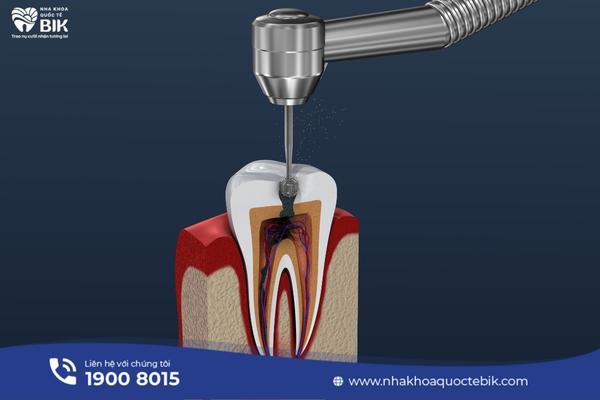The phenomenon of loose teeth in adults is a worrying thing, if not treated promptly, the teeth may break and fall out and cannot grow back. So what is the cause of loose teeth and what to do when it happens? Let’s find out with BIK International Dentistry through the article below!
1. Are loose teeth dangerous?
If teeth are loose in children, there is no need to worry because this is a phenomenon that the child is about to change new teeth. But loose teeth in adults is an extremely worrying problem because this condition only occurs when the teeth lose their support force and the ability to firmly adhere to the gums according to their biological structure.
The condition of loose teeth is often easily detected when a moderate force is applied to the teeth. Loose teeth tend to become more and more loose and interfere with eating. If the patient is experiencing other symptoms in addition to loose teeth, it may be a sign of an underlying medical condition. Other symptoms that often accompany loose teeth include: Bleeding gums, swollen gums, gum and tooth degeneration, etc.
The above symptoms can be signs of pre-existing diseases, so it is necessary for customers to go to dental facilities for timely support and examination of loose teeth.
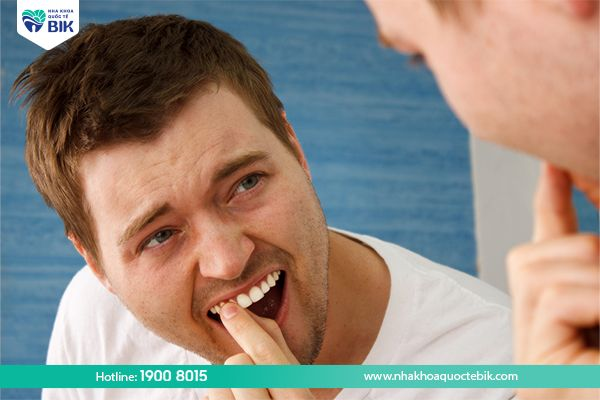
2. Causes of loose teeth
In adults, loose teeth are a concern. Here are some common causes of loose teeth:
2.1. Loose teeth due to periodontitis
Periodontitis is the most common disease that causes loose teeth. When a patient has periodontitis, the gums can be pulled away from the teeth and form pus pockets that create a favorable environment for bacteria to grow and cause infection.
If not detected and treated promptly, the infection can cause loss of connective tissue and bone, causing loose teeth. Periodontal disease has some signs such as: swollen, painful and red gums, receding gums, bleeding gums, bone loss, etc.
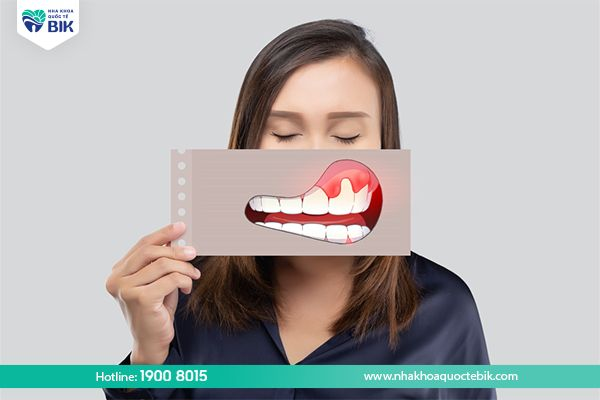
2.2. Due to external impact
Some unwanted situations due to external impact will also cause loose teeth. For example, if you are unlucky enough to have an accident, get hit, or fall,… the periodontal ligament system will be severely damaged, leading to loose teeth or even broken teeth.
2.3. Bone loss
Bone loss is a dental disease that causes the gums to recede, resulting in a decrease in the height and width of the bone wall, making it unable to support the gums anymore. At this time, the gums will recede and gradually separate from the tooth root, causing the tooth to become loose.
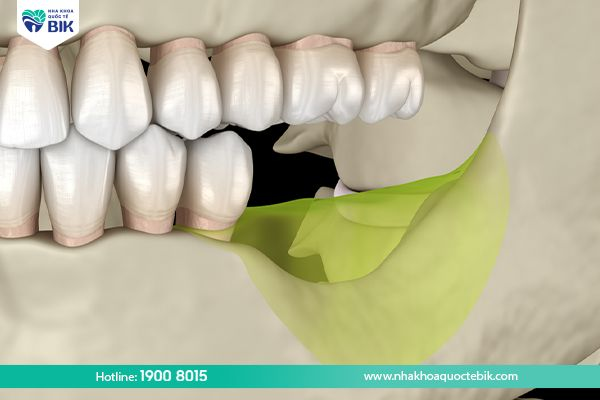
2.4. Tooth decay
Tooth decay is also one of the common causes of tooth loosening. When tooth decay damages the tooth, it can spread to the pulp, causing pulp tissue infection and tooth root abscess.
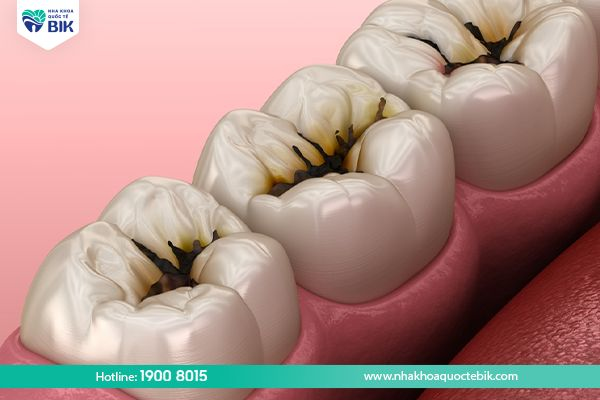
2.5. Pregnant women
During pregnancy, women will experience hormonal changes. In particular, progesterone and estrogen hormones will increase higher than normal. This is the reason why pregnant women’s teeth are affected. In particular, hormonal changes affect the periodontal ligament system, causing loose teeth. However, you do not need to worry too much when your teeth are loose due to this cause.
2.6. Osteoporosis
Osteoporosis means that the bones have more holes and are more porous, leading to bones that are more prone to fracture. Osteoporosis can adversely affect the jawbone – which is responsible for holding the teeth in place through the tooth socket. When the jawbone is no longer strong, brittle, and porous, it will cause the tooth support to loosen, the teeth to become loose or even fall out.
2.7. Due to bad habits
Many people have some bad habits such as opening water bottle caps with their teeth, tearing bandages with their teeth or grinding their teeth while sleeping,… which can also lead to loose teeth. In particular, frequent teeth grinding causes the two jaws to clench together, causing damage to the enamel. In addition, this also inadvertently creates pressure on the teeth, which can gradually cause the teeth to loosen and the supporting tooth tissue to be damaged.
3. What to do when the molars are loose?
After determining the cause of loose teeth, doctors will treat them with appropriate methods:
3.1. Treatment of periodontitis
Periodontitis is one of the common and serious oral problems. For this disease, doctors will remove the bacteria that cause the disease by scaling, cleaning and cleaning the teeth. If the inflammation is mild, the patient can be treated with antibiotics at home as directed by the doctor. In addition, regular oral hygiene will limit disease-causing bacteria.
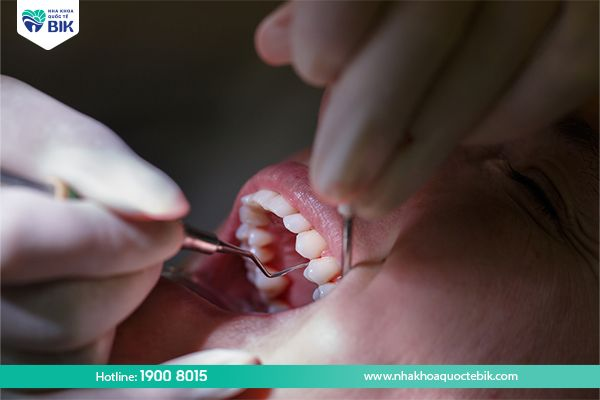
3.2. Supportive surgery
For cases where the inflammation has become more severe, the doctor may recommend surgery to remove the inflamed gum tissue or damaged bone. Next, to reduce the risk of tooth loss, the doctor will perform gum grafting. This is a highly technical procedure, so patients need to go to reputable dental facilities for proper treatment.
3.3. Bite adjustment
Bite adjustment is a method of reshaping the biting surface of the tooth by removing a small amount of enamel. This method helps reduce the pressure on the tooth, helping the tooth heal faster.
3.4. Bone grafting
If the bone is degenerated, the doctor can take another piece of bone from the body or use special bone grafting materials to repair the degenerated bone in the oral cavity. This method helps support the teeth and jaw to become stronger.
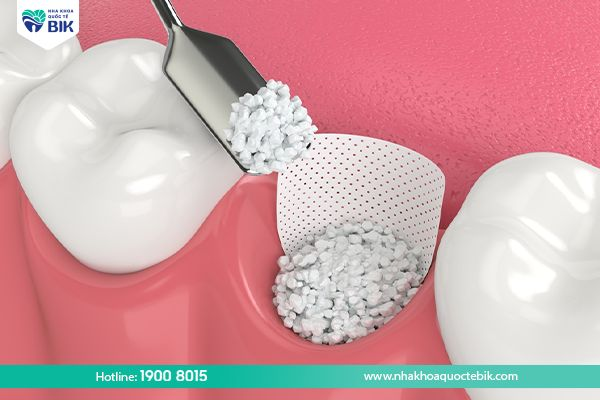
3.5. Use anti-grinding mouthpieces and mouth guards
Another way to prevent teeth grinding and protect teeth from impact is to use an anti-grinding mouthpiece while sleeping. This helps create a protective barrier between the upper and lower teeth. In addition, it is important to note that you should not use your teeth to bite or tear objects or foods that are too hard, causing your teeth to loosen.
4. How to prevent loose teeth
To prevent loose teeth, you should note the following:
– Brush your teeth at least twice a day, especially after each meal to remove food plaque.
– Use a soft-bristled toothbrush with moderate brushing force to avoid damaging the gums.
– Replace your toothbrush every 3-4 months to avoid bacteria accumulating, causing tooth decay and making teeth loose.
– Use suitable toothpaste to support strong teeth, prioritize choosing the type containing fluoride.
– Combine with flossing department to remove food debris in between teeth, avoid damaging the gums.
– Maintain a scientific diet, supplement with necessary vitamins and minerals to support increased resistance to help the body fight harmful bacteria.
– Visit the dentist regularly at least every 6 months to ensure regular check-ups on oral health.
So loose teeth can come from different causes such as periodontitis, osteoporosis, tooth decay, external impact, … If not treated promptly, loose teeth not only affect the patient’s daily life but can also cause tooth loss or other complications. Therefore, when encountering this condition, you can choose BIK International Dental Clinic as a reliable treatment place with a team of highly specialized and skilled doctors.


